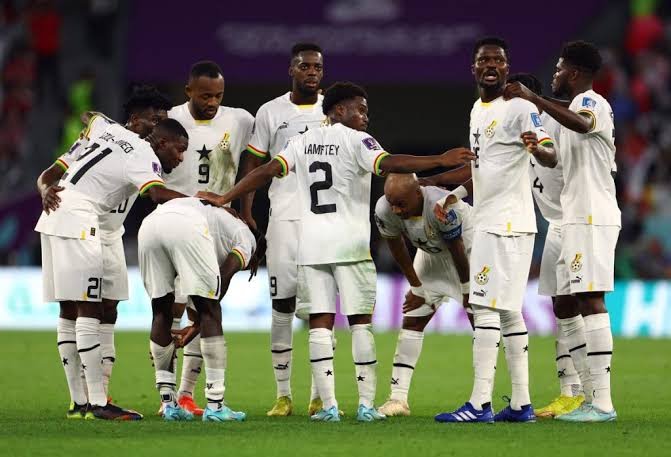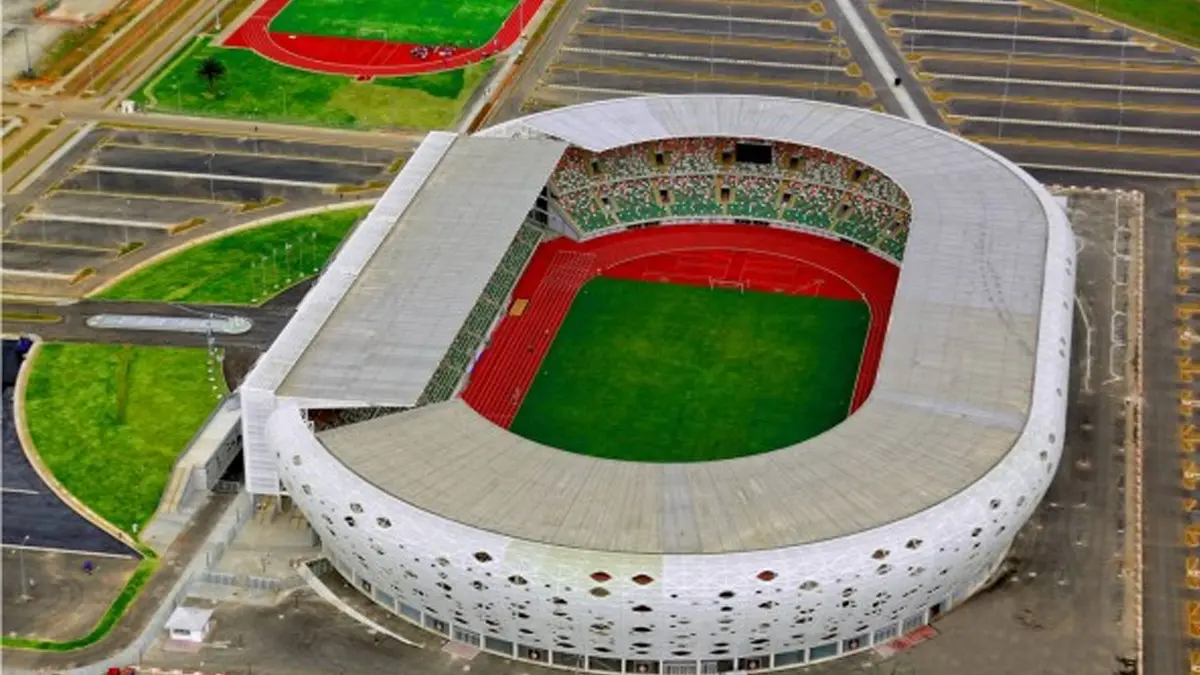The Confederation of African Football (CAF) has dropped another bombshell on the football community, banning one African nation from using their only famous stadium.
The news has sent shockwaves throughout the continent, leaving fans and players alike wondering what led to this drastic decision.

The Black Stars of Ghana faces another major blow
Details of the ban are still scarce, but sources close to the matter have revealed that the stadium in question is one of the most iconic and revered venues in African football.
READ MORE: NPFL confirms Maiduguri as El Kanemi’s home ground for 2024-25 season
The stadium has played host to numerous high-profile matches, including continental club finals and international friendlies.
The ban is believed to be related to issues surrounding the stadium’s safety and infrastructure.
CAF’s inspection team recently reportedly visited the stadium and raised concerns about the condition of the playing field, citing uneven surfaces, poor drainage, and inadequate grass cover as reasons for the stadium’s unsuitability for competitive matches
These problems, along with similar issues at other Ghanaian stadiums such as Cape Coast and Accra Sports Stadium, have left Ghana without an approved venue for their crucial upcoming AFCON qualifiers.
CAF has officially directed Ghana to find an alternative stadium outside the country for their Matchday 3 and 4 AFCON qualifiers, which are scheduled for October.

Ghana has been banned from their only iconic stadium
In light of this, the Godswill Akpabio International Stadium in Uyo, Nigeria, has emerged as a frontrunner, according to Myjoyonline.
The stadium, known for its world-class facilities and proximity to Ghana, appears to be the most convenient option for the Black Stars.
Other venues under consideration include the Stade Félix Houphouët-Boigny and Stade de la Paix, both located in Côte d’Ivoire, as well as Cameroon’s Japoma Stadium in Douala and the Berkane Municipal Stadium in Morocco.
Without access to their home stadium, the team will be forced to find alternative venues for their matches, potentially affecting their performance

The Godswill Akpabio International Stadium, Uyo
The ban also raises questions about the long-term viability of the stadium and the potential consequences for future international matches.
The news continues to unfold and fans and pundits alike are eagerly awaiting further clarification from CAF. One thing is certain, however – this ban has sent a ripple effect throughout African football, leaving many wondering what’s next for the affected nation and their beloved stadium.
Stay tuned for further updates as this story continues to develop.







